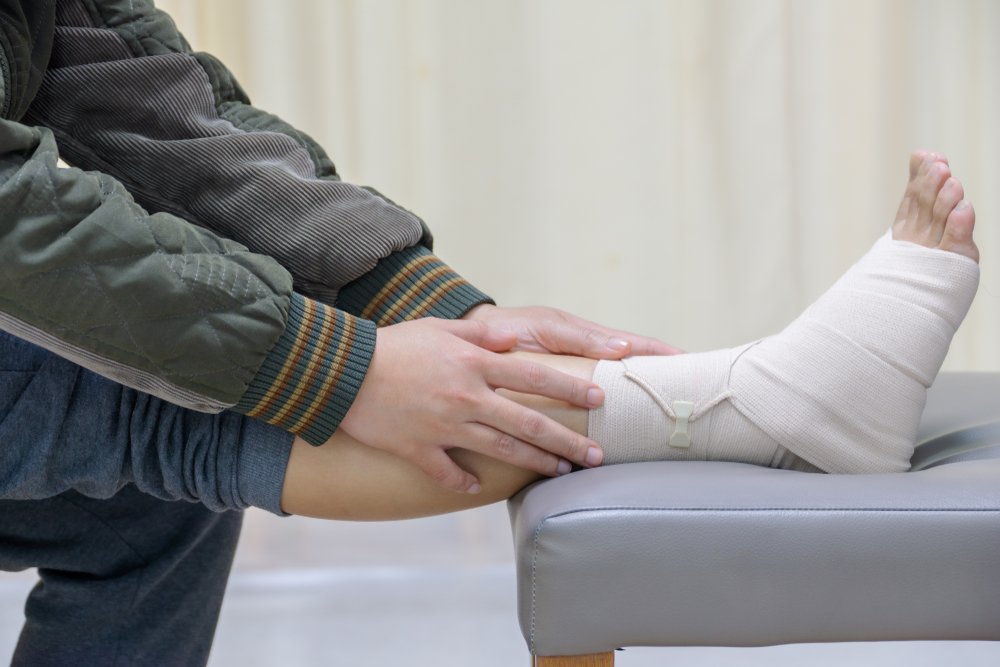Automobile accidents can be traumatic events that result in various injuries, and one common type is soft tissue damage. Soft tissues, such as muscles, tendons, and ligaments, can be strained or torn due to the forceful impact during a collision. While some soft tissue injuries heal with time and proper treatment, others may lead to long-term or even permanent consequences.
Soft Tissue Injuries
Soft tissue injuries are prevalent in auto accidents, especially in cases of rear-end collisions, where the body is jolted abruptly. These injuries can affect various areas of the body, including the neck, back, shoulders, and knees. Whiplash, for instance, is a common soft tissue injury that occurs when the head snaps back and forth rapidly during a collision, causing strain in the neck muscles and ligaments.

The Severity of Soft Tissue Damage
The severity of soft tissue damage can vary significantly. In some cases, the injury may be mild, leading to temporary discomfort and pain that subsides with rest and conservative treatments. However, in more severe cases, the damage can be extensive, resulting in chronic pain and functional limitations that persist over time.
Factors Affecting Soft Tissue Healing
Several factors influence the healing process of soft tissue injuries after an auto accident:
Timely Medical Intervention: Seeking prompt medical attention after an auto accident is crucial. A thorough evaluation by a healthcare professional can help identify the extent of soft tissue damage and initiate appropriate treatment.
Age and Overall Health: Younger individuals and those in good overall health tend to heal faster than older adults or those with pre-existing health conditions that could impede healing.
Rehabilitation and Physical Therapy: Engaging in rehabilitative exercises and physical therapy can aid in restoring strength and flexibility in the affected soft tissues.
Compliance with Treatment: Adhering to the recommended treatment plan and avoiding activities that exacerbate the injury can significantly impact the healing process.
Prior Injuries: Pre-existing injuries or underlying medical conditions may complicate the healing of soft tissue damage sustained in an auto accident.
The Potential for Long-Term Consequences
Soft tissue injuries may seem minor initially, but they can lead to long-term consequences if not treated properly. Failure to address the underlying soft tissue damage can result in chronic pain, reduced mobility, and a diminished quality of life. In some cases, untreated soft tissue injuries may cause scar tissue formation, which can further limit the range of motion and lead to ongoing discomfort.
Chronic Pain and Disability
Soft tissue injuries that do not heal properly can result in chronic pain that persists for months or even years after the accident. This chronic pain can lead to disability, affecting the individual’s ability to work, perform daily activities, and enjoy life fully. It can also lead to emotional distress, anxiety, and depression, further impacting overall well-being.
Seeking Professional Medical Care
If you experience any pain or discomfort after an auto accident, seeking medical care is essential, even if the injuries appear minor at first. Soft tissue damage may not be immediately apparent, and a healthcare professional can provide a thorough examination to diagnose and address any injuries.
Treatment Options for Soft Tissue Damage
The treatment approach for soft tissue injuries varies based on the severity of the damage. Some common treatment options include:
Rest and Ice: Resting the injured area and applying ice packs can help reduce inflammation and pain.
Physical Therapy: Physical therapy can aid in strengthening the affected soft tissues and improving mobility.
Pain Medications: Over-the-counter or prescription pain medications may be recommended for pain relief.
Injections: Corticosteroid injections may be used to reduce inflammation and provide relief from pain.
Regenerative Medicine: Techniques such as platelet-rich plasma (PRP) therapy or stem cell therapy can promote healing in damaged soft tissues.
Surgery: In severe cases where conservative treatments do not provide relief, surgical intervention may be considered to repair torn soft tissues.

The Importance of Early Intervention
Early intervention is key to preventing soft tissue injuries from becoming chronic or permanent. Seeking medical care promptly after an auto accident allows healthcare professionals to assess the extent of the damage and recommend appropriate treatment options. Ignoring or downplaying soft tissue injuries can lead to long-term consequences that impact an individual’s quality of life.
Soft tissue damage sustained in an auto accident can range from mild to severe, and the potential for long-term consequences exists, especially if not treated promptly and properly. Seeking immediate medical attention and following through with recommended treatments can significantly improve the chances of a successful recovery and prevent soft tissue injuries from becoming chronic or permanent. Call (469) 545-9983 to make an appointment with Specialty Care Clinics. If you have been in an auto accident and are experiencing pain or discomfort, it is essential to reach out to a healthcare professional to assess and address any potential soft tissue damage. Remember, prioritizing your health and well-being is paramount in the aftermath of an accident.
